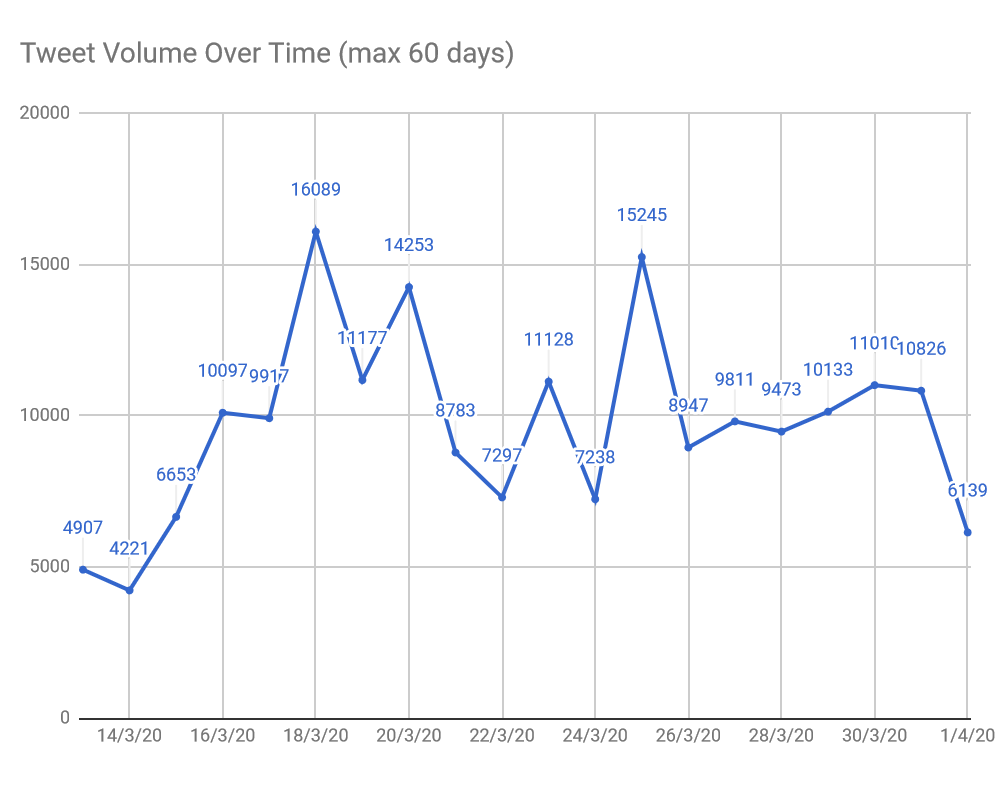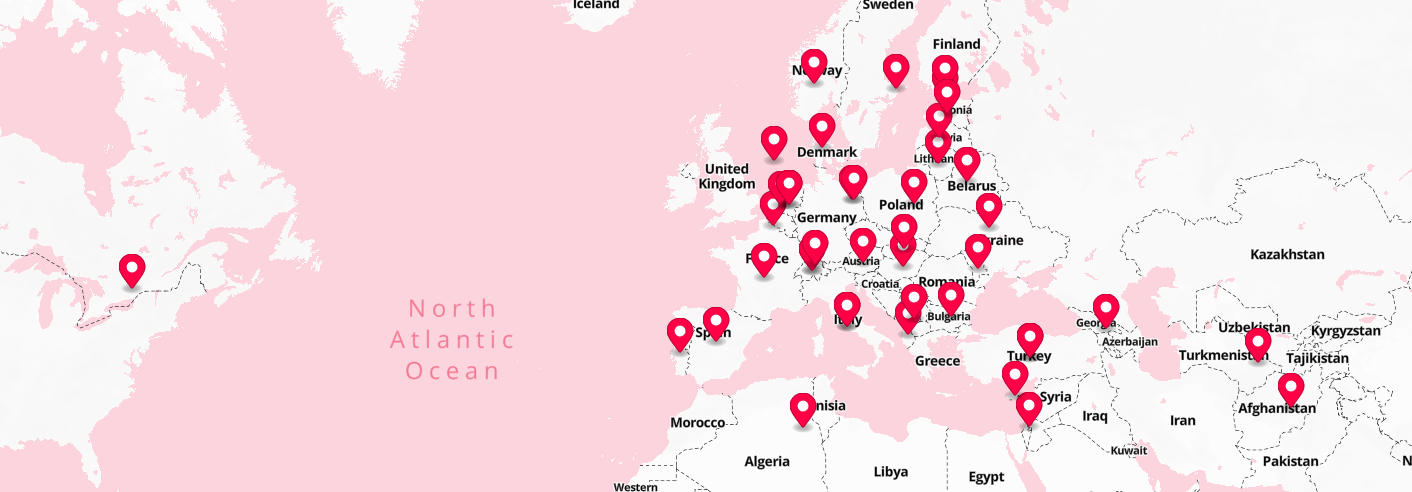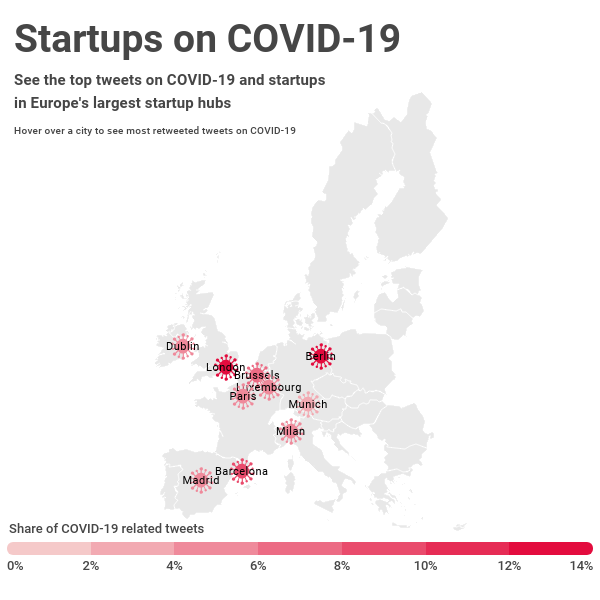Despite a late start, European startup media and the community itself succeeded in presenting startups in a favorable light and as part of the solution. This led to generous government support. Various startup brands like Startup Estonia, France or the EU’s EASME rushed to be leaders in the fight against the COVID-19 pandemic. However, the question might be asked: Will this help real startups?
COVID-19 related tech news have soared tremendously in March 2020 overtaking even FinTech related news, which for long dominated the blogs focusing on European tech.
Two observations stand out:
1) The increase of Corona-related news did not diminish the absolute number of mentions of other topics and
2) Health & BioTech startup news clearly benefit from the attention.
Breaking down the news into daily occurrences, we see that the European tech world was rather adamant over the crisis when it was only in China. Even when the Mobile World Congress was cancelled on 12th February over concerns of the spread of the virus, there was no analysis of possible wider impacts on the startup scene in the leading tech blogs. Articles slowly started to appear when Sequoia issued a stark warning on 8th March almost a month later, but noone was able to prepare startups for what was coming. A week later the frenzy started with the EU commission directing their SME Instrument funding call towards startups with COVID-19 solutions, widely covered by TechCrunch and other media. Looking at the distribution it becomes clear, that startup media was not working as canary bird, providing forward looking analysis but rather reacted to the situation as it evolved.

Hackathons bring Tech Community Together
Crisis situations like these are the times when Twitter is in the spotlight. We have been tracking >200,000 tweets mentioning COVID-19 and tech related buzzwords. In parallel to news blogs we see a surge of COVID-19 related tweets starting on 14th March with the Commission’s call for help. It corelates with another phenomenon during the same days: the start of the Hack-the-Crisis movement, which can clearly be identified as a turning point in terms of perception of the crisis in the startup scene.
Garage48 and Accelerate Estonia ran the first COVID-19 related Hackathon on 13th and 14th March. It was preceded – as far as we know – only by Tech4COVID19 in Portugal, which kicked off a week before. Until 1st April 45 further Hackathons were announced and listed on the website of Hack-the-Crisis.
In retrospect the Hackathons are a way to give a sense of belonging to the tech community, giving them a way to act in a situation that looks otherwise helpless. And they clearly cemented the positive image of the tech scene in the broader society. Without these Hackathons with for example 42,000 participants in Germany alone, government funding would have not been mobilized so swiftly. France announced a €4bn liquidity support to startups on 25th March and Germany followed suite with € 2bn on 31st March.
It is not surprising that 97% of tweets on COVID-19 and startups expose a positive sentiment as a rough AI based analysis of >500 tweets shows.

It has however been rightly noted, that Hackathons are not equal startups. And when we look at what startups are concerned with, we see that other topics and locations are emerging. The map below shows the communities with particularly hot discussions on COVID-19, measured as a percentage of the total amount of tweets on startups and the city. 14% of all startup related tweets mentioning London also mention COVID-19, in Berlin the number is 11%.
While in London the main drivers are concerns about the recession and lower VC investments, Berlin is celebrating its startups contribution to fight the pandemic.
Hover over the cities in the chart below to see the most retweeted tweets per city!
In conclusion we can see that the European tech community presented itself successfully as part of the solution and therefore managed to attract also support from government. The flipside is that very little coverage has gone to the actual challenges affecting startups and how the startup scene can cope.
Many startup places have positioned themselves smartly. Brands like Startup Estonia started the Hackathon movement, France promised the most funding, even the EU was one of the first players to address the issues. This experience shows, that it pays off to engage and lead the way forward. The next wave of successful initiatives surely will have to be about more tailored initiatives addressing slowing VC funding, hard-hit verticals like tourism or how to maintain transnational networks despite long-term travel restrictions.
The Startup Heatmap Europe is a data & knowledge platform for ecosystem builders. If you are interested to track what the effects of COVID-19 are on your ecosystem, contact us at info@europeanstartupinitiative.eu
